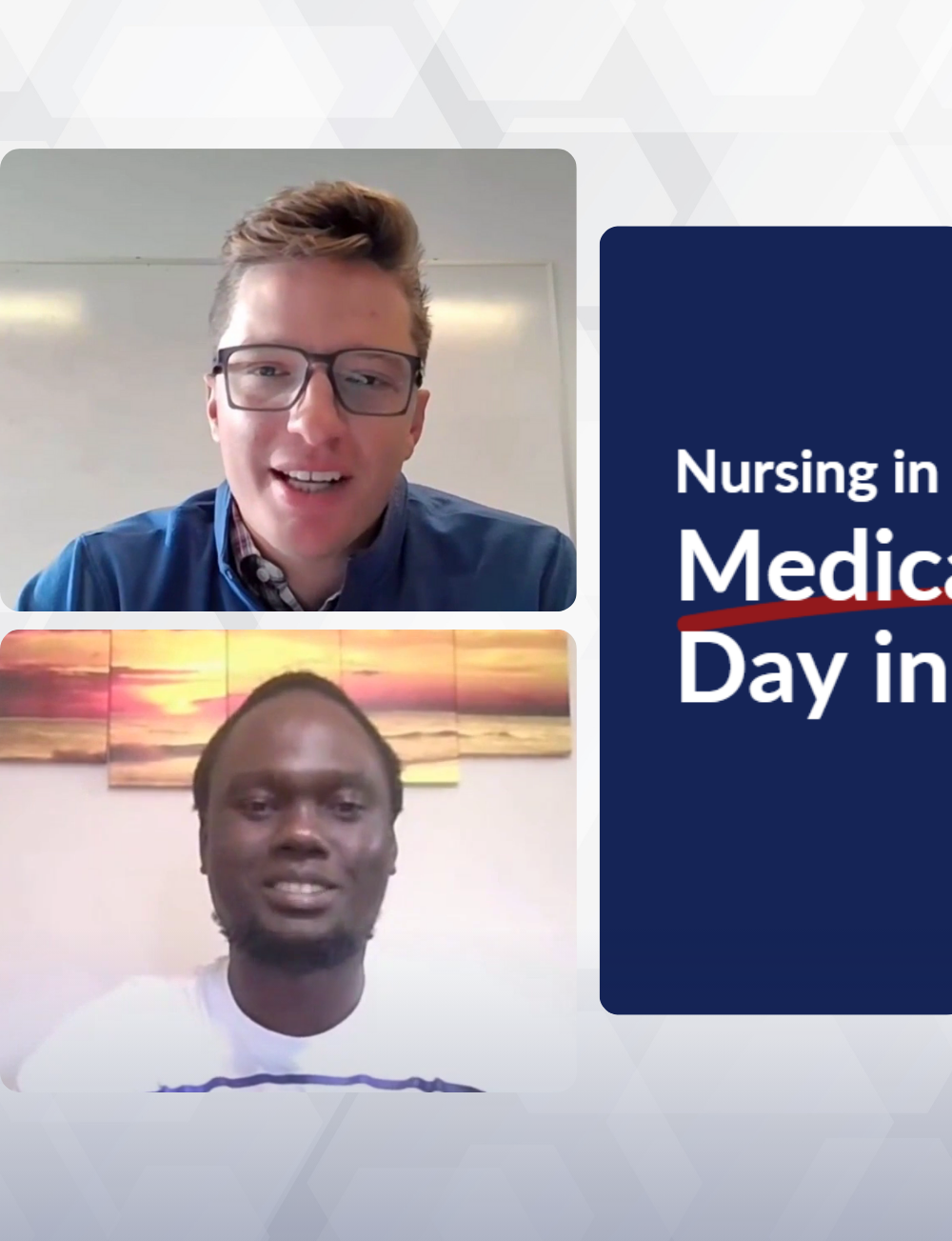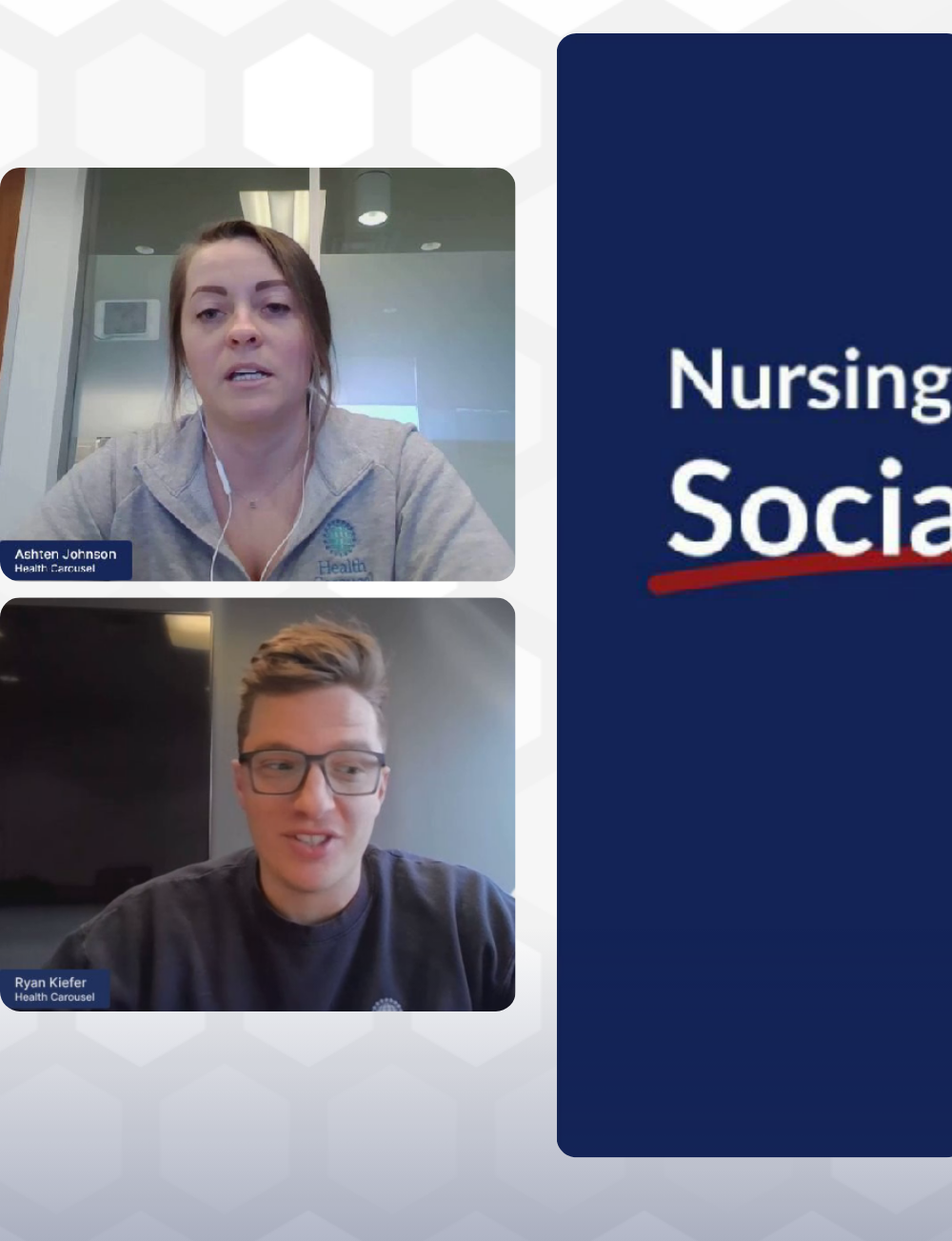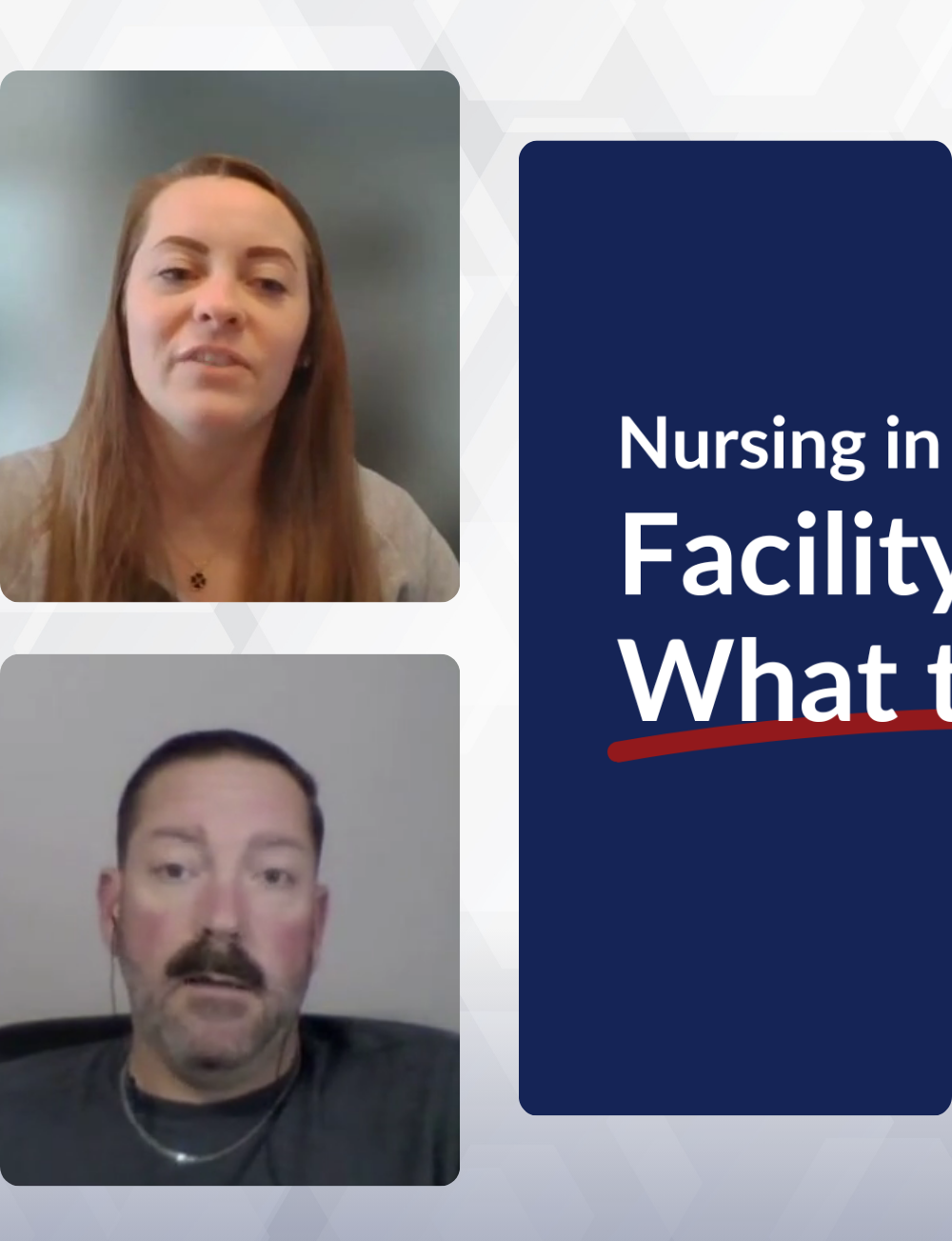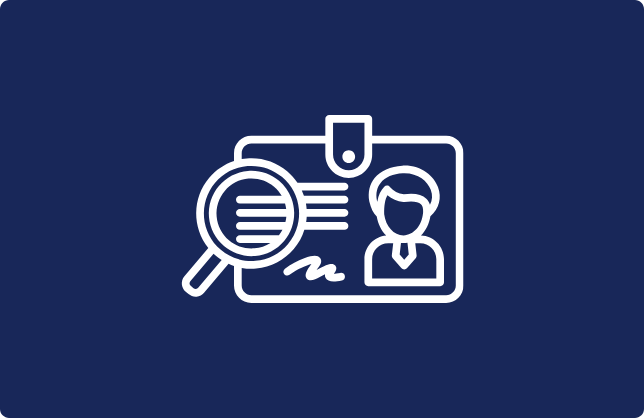A Day in the Life of a Medical Surgical Nurse

The Resource Center content, including all videos and other media, is for informational purposes only. You should not construe any such information or other material as legal, tax, investment, financial or other advice. The advice and information contained in the Resource Center is not a substitute for advice from a professional who is aware of the facts and circumstances of your individual situation
What is it really like to work as a medical surgical nurse in the United States?
So if you've ever wondered what a typical shift looks like, how to balance documentation with patient care, or how different the work environment is compared to your work environment back home, not to worry. You're not alone. Everyone else going through this process is also wondering that same thing.
So to help answer those questions, we are going to be joined by Ryan Kiefer from our clinical support team along with David, one of our incredible medical surgical nurses. And together, they're going to walk through what it's like to work on a med surg unit, what challenges you can expect, and how to thrive in this fast paced environment. So let's go ahead and take a look.
Alright. So hi, everyone. My name is Ryan Keefer. I am one of the nurses on Health Carousel's clinical team.
And I'm joined here today by David, one of our amazing medical surgical nurses who is currently working, here in the US. And so in this conversation, David is going to share what the, typical day looks like on a med surg unit, how he's adapted to the US health care environment, and what advice he has for, international nurses preparing to, make this move. David, thank you for being here. I'm really looking forward to our conversation.
You so much.
And so, really just wanting to to kick things off here. So being a medical surgical nurse who has transitioned their their practice to the United States, I was wondering, if you could share what your average day looks like. What what has that, environment look like to you? And what are some of the biggest differences in your practice that you have had to adapt to?
Yeah. Thank you for that.
Med side, department entails a lot.
From from, when I start my day, I usually prepare very nicely. I make sure I have all things I need, that pertains to taking care of the patients.
At least when I go to see my patients, I just make sure, like, I'm prepared for that day because sometimes message departments can be unpredictable. Sometimes they are not busy. Sometimes they are busy.
More of, just many orders. You know? But it's a nice it's a nice place. It's a nice experience.
Like, for me, I work in a kind of cardiac step down.
So lots of, cardiac issues. You know?
So you have to be prepared for any changes that may occur with a patient at any time.
It takes it takes like, I can say, it's a learning process.
Medical surgical, has a lot, but with time, you kind of learn and adapt to the system.
I can say, for me, coming from another country to the US wasn't that easy to get, adopted to, the system.
But as the time goes by, I get it, so easy and so manageable, and it's kind of enjoyable.
At first, it is so draining, But when you get used to everything, it it becomes easy and just doable.
Currently, I'm enjoying my message, getting to see my patients. You know, you see them when they are low, and then you are there to help them get up and go back to their, to their state they were when they were not sick. You know? When you see them appreciating and you see them, like, just getting up, it feels nice.
Other than that, most of the
Yeah. I mean, yeah, I I was gonna say I I began my career in med surg nursing, and that was really the the most rewarding part was, when the patients come in and and treating them, and it can be hard and tough, but to get to see them build back up to the point where they can then go back home is is truly, truly, the ultimate reward in itself.
And
But, so
So what were, what were some of the skills that you maybe felt that you maybe didn't have or or some of the, you know, the things that you you were maybe asked to do in your position that maybe you weren't prepared for? What what were some of those things you really had to, focus in on?
Like you said, grind it out until, you know, you got to that place where you were One of the main things, I had to prepare myself and kind of, brace myself in was, I can say, monitoring the patients.
Mostly in a cardiac unit, we usually have the EKGs. They are so important. You know? And the lab works, you know, most of the you have to get yourself used to most of the labs that are done in a cardiac setup.
So I had to learn some of the basic, rhythms, you know, the cardiac rhythms on the ECG, how to interpret, just basic, cardiac, rhythms. Because these patients keep changing anytime. You know? At one minute, they're okay.
They are telling you stories. And at one minute, it's just a different person. You know? So, the good thing is that we always have our patients on the cardiac monitors, telemetry, and everything.
So whenever anything happens, you are there. Like, you'll get notified, and you have the you have all, when you're monitoring your patients, you have all the, computers. You have all the system. You can always, check your patient's rhythm at any time even without waiting for the telemetry to notify you when there's any change.
So, adapting to reading the rhythms, interpreting the basic EKGs, you know, it wasn't, easy for me. But, with time, I'm now getting used to it.
Other than that, some of the some of the infusion drips, especially the cardiac drips, you know, you have to understand how to give the cardiac drips, how to titrate them, how to monitor the patients. With time, it becomes easier. But when you're starting, it it feels like, a little bit draining.
But when you understand everything with time, it it feels like a normal thing. You know? Yeah. So
Right. Yeah.
Yeah. Yeah. I think, the you know, understanding and and really Knowing what you're doing is extremely important. Right?
The the act of doing it, the the muscle memory, is there, but it's, you know, the critical thinking factor, that we like, you know, like to say where, it's one thing to give a med. It's another to understand how it works and what the intended effect should be or or what you should be monitoring thereafter. And so, you know, hospitals strongly rely, on their nursing team, right, to be the eye, ears, and and really the first alert, for any changes, in monitoring those patients. So, I mean, you said it best.
Right? It's a lot to take on at first.
It is. Yeah. It just clicks and then you get used to it. You enjoy it.
You know? Sometimes it gets busy. You know? Sometimes you, you know, you have patients who will change anytime and not one, not two of your patients are changing, you know, the condition changes, and then you are there.
You the good thing is that, from the experience I have and from the teamwork, you know, there's always teamwork. People are willing to help you. People are willing to come in and join you if you're having an issue. So I can say, in a message unit, one of the, pillars you have is, teamwork.
So, for me, I think teamwork really helps a lot. You get help and when also you see a colleague is, actually thinking you are there for them, teamwork really helps. Yeah.
Yeah. No. No. Absolutely. Team teams, you know, we couldn't do it without the people around us.
And, that kinda that's a great segue into my next question that I had for you, which was, you know, what have been to you some of the, the biggest resources and most important supporting factors that, you've had, available to you there on on your assignment as you began your journey and and, you know, were overcoming a lot of those The main challenge here is, just culture shock.
Of course, you kind of meeting, new things, and then you are there, like, you never saw this in your country. You know?
From the systems, most of these systems are kind of new.
They're kind of advanced, but I can say the good thing is that you are always given time to learn the system, understand how to use the systems.
With times with the time it just becomes easy, you get used to it. And in fact, it's so easy having all these systems. Another thing, of course, sometimes the language barrier, but it's something like, you get used to it at least, you know, like me, I'm in the southern part of, the Sultana in Alabama.
So the English is a little bit, tricky. You know? When they talk, you have to be very careful and listen keenly.
That was also, kind of a challenge. But with the time it gets easy, you try to listen to them carefully. They are always willing if you ask them to repeat whatever they say. They're always willing to do so. And, the most important thing is actually to understand what they are saying because you've got you you don't want to, like, you are there to help them.
So you have to at least understand what they are saying so that you're able to help. You know?
So, communication is just important. But, I think it is just a challenge during the first or second week because you're you're maybe getting to use used to how they speak.
But with time it just gets easy and you get used to it, It was also a challenge for them to understand me, but at least it gets easy also. I try to make it easy, talk in such a way that I can make them understand. At least I make sure I'm audible enough.
I try to slow down my words so that they can understand better.
With time, it gets easy.
Another thing I can say, I think for me, it was just communication, the language, and, yeah, how the system works. You know?
But all those challenges are just Okay. I find them they were just challenging when I was starting. But as we continue, I don't see, like I don't feel like there are challenges anymore. So it gets it as time goes by.
Yeah. Yeah. The communication can be tough, and, that's one thing I think sometimes catches people, off guard is just remembering how big the United States is and how diverse, you know, different regions are with their their own dialect within the US, you know, southern versus northeastern versus north, you know, north central. So who I guess, if you were to name, like, one resource or one person or people, that have been, you know, supportive to you, to help you maybe guide you through those challenges there, is there any any resources within Health Carousel or there at your facility, directors, educators that have been, impactful to you?
One one like, I can say, passport, you say, really helped me in this. I can say the first people who made me strong is the Passport TSA team because, through, my, IES, that is Grace, Grace could check on us so many times. She could call. She could, email us and make sure that we are doing great. And as for me, I think I had a personal touch with Grace because anytime I had a challenge, I'll get to Grace, and Grace will have a solution for me. That was so encouraging.
Apart from that, we have always had, like, like, calls. We have, like, just getting to share your experiences and then getting people also talk to you, listen to stories from other people who have gone through what you're going through.
So I can say Passport USA just made sure that, it kept us going, integrating each and every person we needed, to talk to us, to share the experiences, and that was actually a great help, when it comes to working this side. Apart from that, at at workplaces, you always meet other colleagues who are willing to help whenever you have a problem, especially, the child nurses. They're always there to help and willing to assist whenever you have a problem. Other than that, the hospital has very nice, resources.
You can always ask for anything you need or go online on the hospital website and find whatever you want to find. If it's a protocol, say, you're trying to find out, sepsis protocol, it's always available there for you. You can always go search, see what the protocol say so that you can just do the right thing. So the hospital has enough resources for anyone who wants to kind of understand how to do things.
And also other than that, before you start working, you have your preceptor. The preceptors are there to make sure you are you are actually, oriented and understand, your roles nicely before you start working. So you're not just coming from that and then starting to gamble around. You know?
So it's a step by step process. You have, like, six weeks for orientation. And if you feel like after the six weeks, you are not comfortably, you are not able to work, you can always ask for ex extension of that period. And, yeah, as the the goal is to make sure you are safe for the patient, you are safe for yourself, and you are able to work, efficiently.
You know? So, yeah, all those processes, getting to preceptorship, learning, the processes and the procedures, getting the teachers, the host, like, we have the, of course, teachers in the hospital who teach you who who can always ask questions when you have to. You have your charges, charge nurses, you have your fellow colleagues.
All those are enough resources to help one to catch up and just be able to move. Yeah.
Yeah. Definitely. Sounds like it's it's going back to to what you said before, the teamwork. Right?
It takes a village. Right? Certainly, I think the the message for for everyone to understand is, right, you can do it on your own. Right?
You you it's so hard from beginning to end. You know, you need the support of those around you. And, you know, it makes me happy to hear that you felt that and that you felt that here with with Passport USA, but then also with your your work family there at your facility. So, I just got one more question for you.
So looking back to when you first arrived in the US, if you were to give maybe one or two pieces of advice to your peers preparing to embark on the, you know, same journey that you've been on, what advice would you give, to to maybe some nurses beginning I can just tell them two things.
This journey is doable.
It only needs patience and persistency.
Some of us started this journey long time ago.
We tried doing it. We never knew, like, we are just we are just in, in the dark. We are just trying, like, kind of gambling.
Then at some point, COVID nineteen hit.
Now when COVID came in, we were just lost. We never knew our fate.
But here we are, Passport USA never abandoned us.
I've worked with Passport USA, and they worked with me throughout the journey until the end, and I'm here enjoying my American dream. It's not easy, of course. You have a lot of things to do, a lot of processes to go through.
It only needs you to be patient enough and to be persistent in whatever you do. Each and every step you go through, you just have to, like, feel like you're moving, you know. And never give up. Just continue moving.
As even if you take a small step, don't just despise that step. Just feel like it's part of the journey. And keep soldiering on. Like for me, I just made sure, like, during the processes and doing everything, I just made sure if there was anything I needed to do, I had to do it.
And I just made sure that it's not me who is making, things go slow or it's not me who is who they are waiting on to do something. I always did my things very fast to make sure that it's other people, maybe other things that are making me wait, but not myself, delaying my process by my own. So, just keep doing what you need to do.
Keep reading. For those, like, for those who are who are preparing to do the NCLEX, they should just go ahead, prepare, take that exam. Because I have seen some nurses texting me and telling me, like, now, you know, this process is not moving. I don't know, the visas are not being issued or whatever.
But I usually remind them that let that not be your issue. Just tackle whatever is on your side. So you have the exam. Just prepare for the exam. Go take the exam.
With the visas, you have no control. Just leave that for another time. The good thing is that when you take the exam, it's not going to expire. The exam is there.
You have already taken it. So you shall be talking about other things and not the exam. So always move, move, and move. Never stop.
Never start looking at another process that is ahead of you, yet you have other processes you are supposed to be doing, you know.
Just just move one step at a time and you will realize your American dream. It's doable. It's true. I'm here. And so far, so good.
Well, David, I can't think of a better way to to end our interview. So, you know, you're truly you know, your your words are inspirational, and I hope that your peers take those and, run with them. And so, you you know, your journey you've been on is is only beginning, and it's amazing, how far you've
Related Resources
Keep Exploring More Resources
Looking for more guidance? Browse our full collection of resources to support you throughout your journey.
.webp)






.webp)